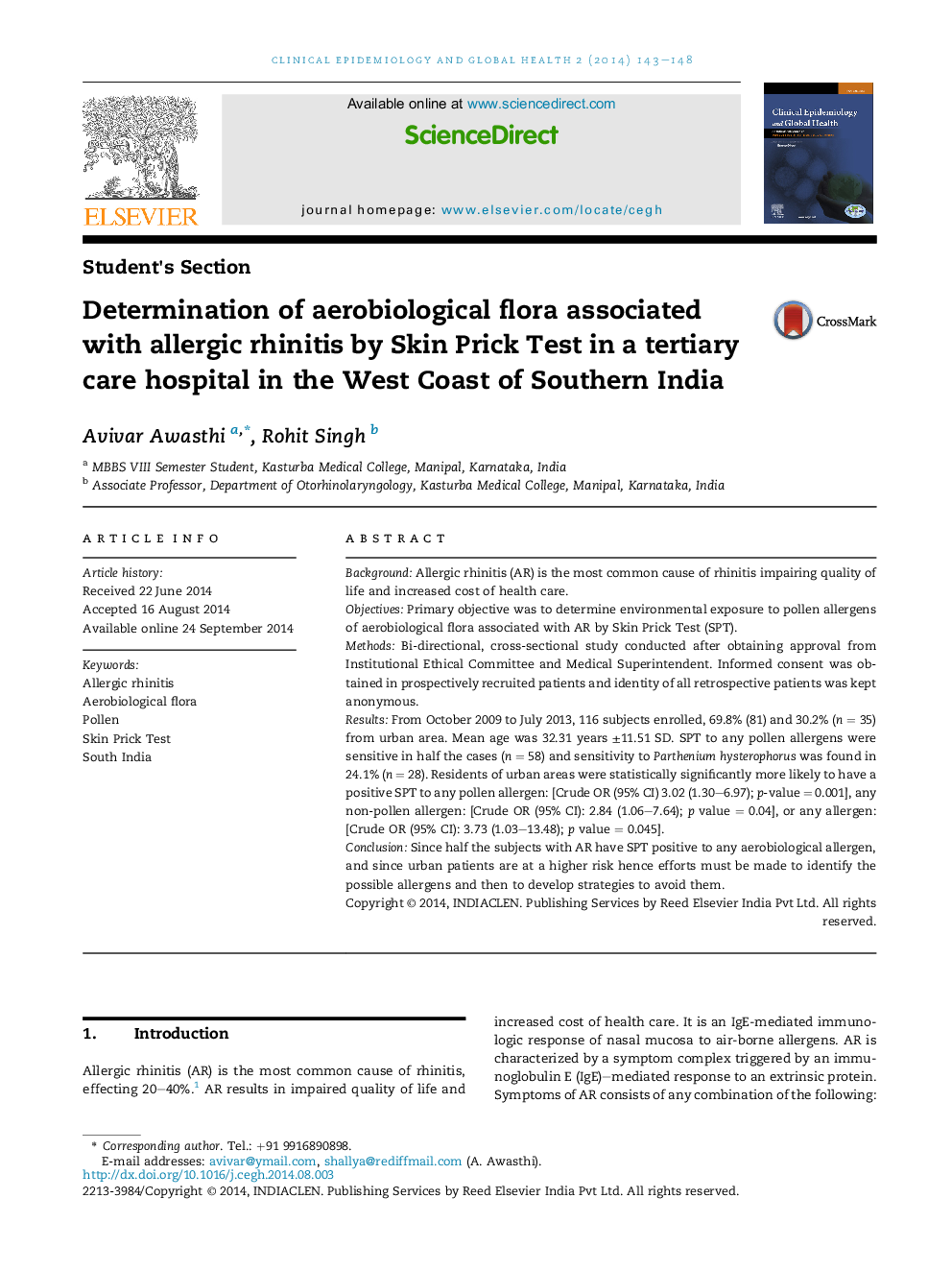| Article ID | Journal | Published Year | Pages | File Type |
|---|---|---|---|---|
| 3396262 | Clinical Epidemiology and Global Health | 2014 | 6 Pages |
BackgroundAllergic rhinitis (AR) is the most common cause of rhinitis impairing quality of life and increased cost of health care.ObjectivesPrimary objective was to determine environmental exposure to pollen allergens of aerobiological flora associated with AR by Skin Prick Test (SPT).MethodsBi-directional, cross-sectional study conducted after obtaining approval from Institutional Ethical Committee and Medical Superintendent. Informed consent was obtained in prospectively recruited patients and identity of all retrospective patients was kept anonymous.ResultsFrom October 2009 to July 2013, 116 subjects enrolled, 69.8% (81) and 30.2% (n = 35) from urban area. Mean age was 32.31 years ±11.51 SD. SPT to any pollen allergens were sensitive in half the cases (n = 58) and sensitivity to Parthenium hysterophorus was found in 24.1% (n = 28). Residents of urban areas were statistically significantly more likely to have a positive SPT to any pollen allergen: [Crude OR (95% CI) 3.02 (1.30–6.97); p-value = 0.001], any non-pollen allergen: [Crude OR (95% CI): 2.84 (1.06–7.64); p value = 0.04], or any allergen: [Crude OR (95% CI): 3.73 (1.03–13.48); p value = 0.045].ConclusionSince half the subjects with AR have SPT positive to any aerobiological allergen, and since urban patients are at a higher risk hence efforts must be made to identify the possible allergens and then to develop strategies to avoid them.
